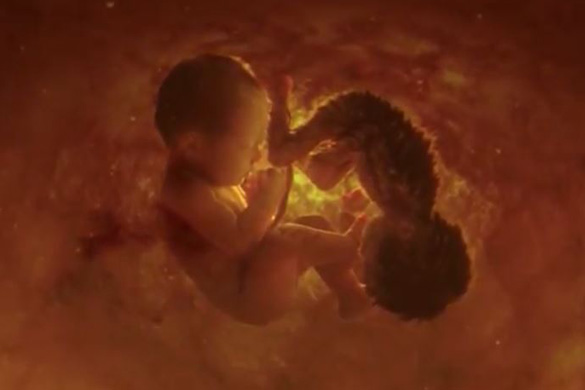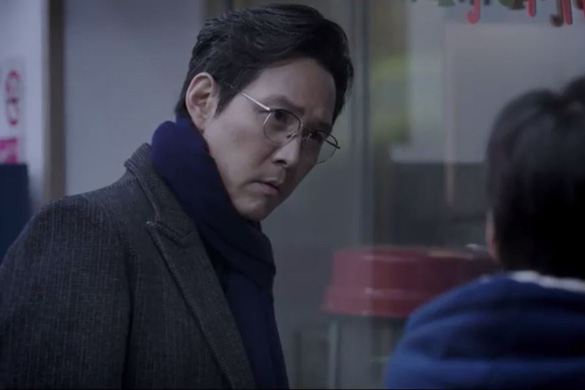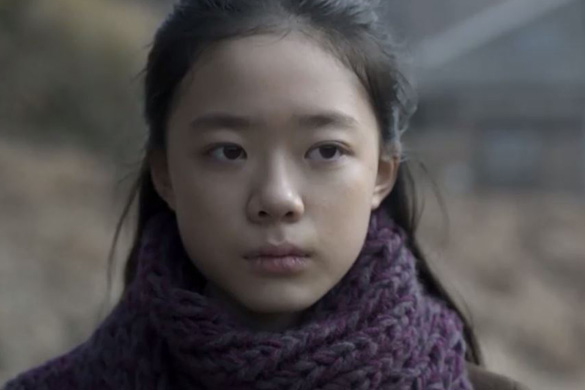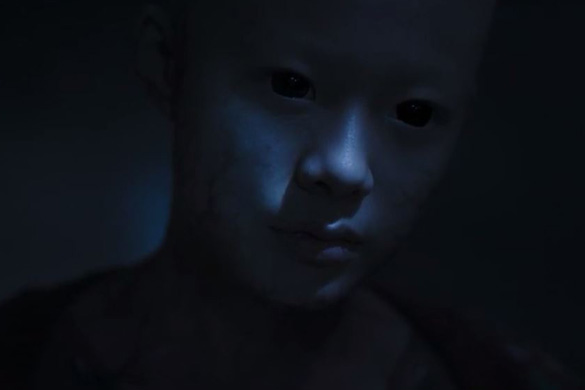"The day I was born, goats wailed like crazy. That day, a demon was born with me.
After hiding in my mom's womb for ten months, it came into the world ten minutes before I did.
That thing lived by eating the flesh of my leg.
People said it should have been killed back then but doctors thought it wouldn't live long anyway.
They were wrong, it's still alive today..."
Synopsis:
Pastor Park (Lee Jung-jae), heads up the Far East Religious Research Centre, investigating and discrediting religious groups he believes are in truth cults. However, he regularly faces stark criticism from many claiming he is as often as not simply persecuting the innocent as a means to coldly rake in cash he ultimately doesn't deserve.
On beginning an investigation into the Deer Hill Buddhist sect, Park becomes aware of a group member called Na-han (Park Jung-min), a zealous young man he soon comes to believe is responsible for a number of recent murders in the vicinity. Determined not only to stop Na-han in his tracks but also discover why he's continually killing people, Park sets out to track him down, unaware that the clock is ticking as he already has his next victim in his sights.
Na-han's latest target is a young woman called Geum-hwa (Lee Jae-in) but even he doesn't know she has a twin sister who is kept chained and locked up by her family, convinced, as they are, that she is a demon...
Review:
Svaha opens with a narration from Geum-hwa, interspersed with sepia toned flashbacks, detailing her birth and that of her twin sister as well as the death of their parents, which the teenager believes was entirely the fault of her allegedly demonic sibling.
This noticeably atmospheric opening combines with subsequent, equally well created set pieces (a flock of birds smashing into and through glass windows as Na-han stalks Geum-hwa in her home; snakes slithering out from under the chained door of the outhouse while Geum-hwa’s twin wails and growls in suitably demonic fashion within; blood-soaked dead children (all girls) entering Na-han's bedroom through an opening in his ceiling and climbing down his walls as he sleeps; etc) to ensure the narrative’s horror aspects are wholly evocative throughout and while I wouldn’t say they scare overall as much as director Jang Jae-hyun obviously planned they are nonetheless successfully creepy.
 |
Initially at least, Svaha is essentially split into three main story threads - Park's investigation, Na-han’s pursuit of Geum-hwa, and the character arc of both sisters (the latter, it does have to be said, has the least actually going on until the narrative nears its culmination). These, of course, eventually coalesce into a singular tale which is at its core an easy to understand depiction of the emergence of good and evil and indeed the symbiotic nature of the two.
However, related and building proceedings are fairly involved and directors Jang Jae-hyun’s decision to base all of the above on a supposedly little known Buddhist sutra/scripture results in a need for a huge and ongoing amount of exposition, mostly given through dialogue between Park and various individuals. This doesn’t necessarily mar the narrative flow per se but it did leave me for one with the feeling that I needed to be sure I was catching each and every intricacy to fully appreciate what for a time looked like a build to a fairly complex finale, even though in reality that wasn’t actually the case, and that by its very nature does tend to pull away from immersion to a degree.
What Jang does succeed in doing is raise thought-provoking questions about religion as a whole (whether Buddhism, Christianity or whatever) pointing to the fact that followers of scriptures written by and teachings of individuals need to be fairly certain those individuals are speaking from a perspective of enlightenment and asking what effect that perhaps not wholly being the case would have on religious thoughts, deeds and actions.
Not only that but he also points to the notion that good and evil can be less black and white and less set in stone than doctrines may profess, not least by discussing evil acts undertaken in the name of good. This is further underlined by the majority of the main characters either ultimately showing themselves to be different at heart from how they first appear or indeed changing as their arcs develop - a nice touch to personify, if you will, the thematic discussions.
 |
The expositional nature of so much of Svaha’s narrative doesn’t necessarily detract from these discussions but certainly from a personal point of view I found a second viewing a far more enjoyable experience, having the full story already under my belt allowing me to focus far more on the story build and questions raised.
Ultimately, Svaha isn’t perfect but its flaws don’t prevent it from being an enjoyable, often intelligent and at times genuinely creepy tale even if it isn’t really as scary as one might assume a story so prominently featuring a demon would be.
Summary:
Overall, Svaha is an often nicely creepy horror/thriller which successfully raises intelligent, thought-provoking questions about religion as a whole. However, the hugely expositional nature of so much of the narrative doesn’t particularly do the film any favours even if it doesn’t prevent it from being enjoyable and entertaining as a whole.
SVAHA: THE SIXTH FINGER (사바하 / 2019)
Director: Jang Jae-hyun
Starring: Lee Jung-jae, Park Jung-min, Lee Jae-in, David Lee
|





